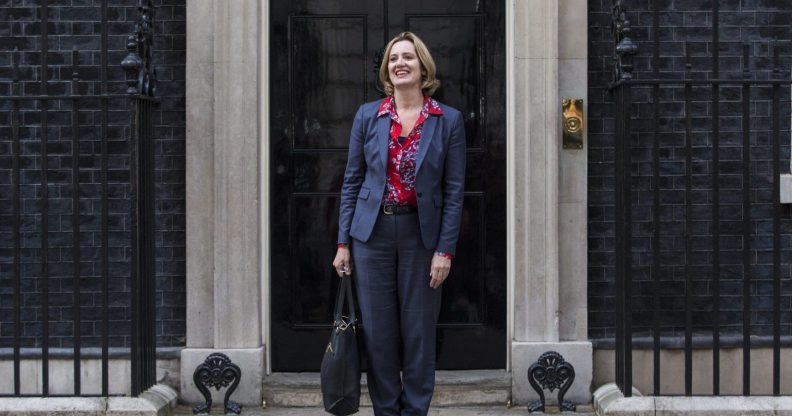Government vows crackdown on chemsex drugs

(Getty)
The government has vowed to clamp down on drugs used for chemsex.
Chemsex, which refers to the use of drugs to enhance a sexual experience, is increasingly common among gay and bisexual men.
Sexual health experts have warmed about the boom in chemsex on London’s gay scene, with crystal methamphetamine, GHB/GBL and mephedrone increasingly popular.
Today, Home Secretary Amber Rudd vowed a clampdown on chemsex as she launched a new drive against illegal drug use.

The Home Office explained: “Chemsex carries serious physical and mental health risks including the spread of blood borne infections and viruses.
“PHE will support local areas to meet these needs by promoting and publishing guidance on effective practice, including targeted interventions
and close collaboration between sexual health services and other relevant services including community groups.”
The government vowed to “pursue a strong law enforcement response and dismantle trafficking networks”, as well as expand the Alcohol and Drugs Education and Prevention Information Service.
As part of the drive, new National Recovery Champion will be appointed to make sure adequate housing, employment and mental health services are available to help people turn their lives around.
Home Secretary Amber Rudd said: “Since becoming Home Secretary I have seen first-hand how drugs can destroy lives.
“I am determined to confront the scale of this issue and prevent drug misuse devastating our families and communities.
“This government has driven a tough law enforcement response in the UK and at our borders, but this must go hand in hand with prevention and recovery.
“This new strategy brings together police, health, community and global partners to clamp down on the illicit drug trade, safeguard the most vulnerable, and help those affected to turn their lives around.
“We must follow through with our commitment to work together towards a common goal: a society free from the harms caused by drugs.”
Nic Mooney from Manchester’s LGBT Foundation, said: “We welcome the recognition of the need to tackle the issues around chemsex, outlined in the new government strategy released today.
“LGBT Foundation has been supporting and advising people involved in chemsex over the past few years and have clearly seen the benefit of proving targeted advice and interventions to reduce risk.
“This support has been invaluable in helping to address underlying issues related to such activity, including internalised homophobia and poor metal health.”
National Police Chiefs’ Council Lead for Drugs, Commander Simon Bray said: “Illicit drugs feature in so many types of harm and crime; they are frequently used as a commodity by organised criminals and gangs, often linked to violence and exploitation of the vulnerable.
“Drugs are the root cause behind countless burglaries, thefts and robberies, and are often associated with anti-social behaviour and public concern.
“The government has set out their new strategy for tackling the complex harms and issues associated with drugs and police will play our part in delivering it.”
Paul Hayes, Chief Executive of the Collective Voice, said: “The government’s recognition that evidence based treatment, recovery, and harm reduction services need to be at the heart of our collective response to drug misuse is very welcome.
“Investment in treatment has reduced levels of drug use, cut drug related crime, enabled tens of thousands of individuals to overcome dependence, and is crucial in combating the recent increase in drug related deaths.
“The Home Secretary’s commitment to personally lead this cross-government effort, and the increased transparency of local performance provide the political energy and focus needed to turn the strategy’s aspirations into outcomes.”

